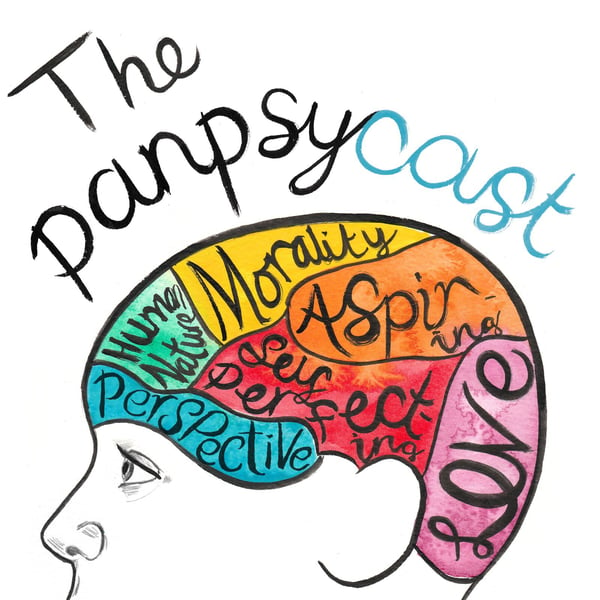Episode 127, ‘The Pursuit of Happiness’ with Jeffrey Rosen (Part II - Further Analysis and Discussion)
The Panpsycast Philosophy Podcast
Jack Symes | Andrew Horton, Oliver Marley, and Rose de Castellane
4.8 • 604 Ratings
🗓️ 10 March 2024
⏱️ 35 minutes
🧾️ Download transcript
Summary
Alongside life and liberty, the Declaration of Independence marked the pursuit of happiness as the foundation of American democracy. Yet, as the history of philosophy has taught us, understanding happiness is no easy task. Pursuing happiness as the cessation of desire, a feeling of perpetual pleasure, or as a state of human flourishing are very different projects…so, which conception of happiness did America’s Founding Fathers take to be an ‘inalienable right’?
In this episode, we’ll be exploring the nature of happiness with Professor Jeffrey Rosen, President and CEO of the National Constitution Center. According to Rosen, in tracing the Founding Fathers’ intellectual development – inspired by Greek and Roman philosophy – we see that the Founders understood happiness as a pursuit of moral excellence rather than immediate gratification.
No doubt, Western understandings of happiness have shifted…today, happiness means something closer to feeling good than being good. Our question is whether this cultural shift was a mistake. In carving out our futures, ought we look to the past? In defining the purpose of our lives and the destination of our states, should we turn to America’s Founding Fathers and their ancient teachers?
Contents
Part I. The Founding Fathers
Part II. Further Analysis and Discussion
Transcript
Click on a timestamp to play from that location
| 0:00.0 | Pan Pan Pan Pan Pan Pan Pan Pan Pan Pan Pan Pan Pan Pan Pan Pan Pan |
| 0:07.0 | Scicast |
| 0:07.8 | Part 2, further analyses and discussion. |
| 0:26.6 | In our previous instalment, we discussed how moral philosophy influenced the founding fathers' personal and political development |
| 0:35.1 | and the emphasis they placed on living virtuously. |
| 0:38.9 | It might be interesting to begin this section then by challenging the role that virtue ought to play |
| 0:45.1 | within political life. In our episode on Machiavelli, we spoke about the ruler betrayed in |
| 0:51.7 | the prince who, unlike the ruler of Confucian political philosophy, for example, |
| 0:56.6 | must live a life of virtue and vice in order to maintain order. |
| 1:01.3 | But the founders aspire to embody virtue in all aspects of their character. |
| 1:05.3 | But I wonder if this is what we really want from our rulers. |
| 1:08.8 | At times, don't we want them to deceive and betray |
| 1:12.4 | on behalf for the good of the nation? What do you make of this Machiavellian critique, Jeff, |
| 1:17.8 | that the founding fathers were too good to be rulers, aspired to be too good rather? |
| 1:24.4 | The founders read Machiavellian, in in fact the Virginia Declaration of Rights written by |
| 1:31.0 | Jordan Mason, talks about the importance of frequent recurrence to the virtues of temperance and |
| 1:36.4 | prudence, which Mason was quoting from Machiavelli. There's much to say about the clash between |
| 1:43.1 | the civic Republicans who insisted on achieving |
| 1:47.6 | virtue in common for the benefit of the polity and the liberals who put more faith in |
| 1:55.1 | institutional checks. At the moment, America's about to have a presidential election where there's a widespread |
| 2:02.1 | fear of demagogues, populists who flatter the people and exalt their own ambition in an effort |
| 2:10.9 | either to divide the union or install themselves as authoritarian. And that fear was so central to the founders |
... |
Please login to see the full transcript.
Disclaimer: The podcast and artwork embedded on this page are from Jack Symes | Andrew Horton, Oliver Marley, and Rose de Castellane, and are the property of its owner and not affiliated with or endorsed by Tapesearch.
Generated transcripts are the property of Jack Symes | Andrew Horton, Oliver Marley, and Rose de Castellane and are distributed freely under the Fair Use doctrine. Transcripts generated by Tapesearch are not guaranteed to be accurate.
Copyright © Tapesearch 2025.

